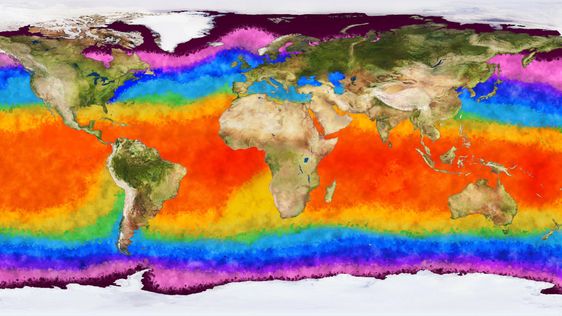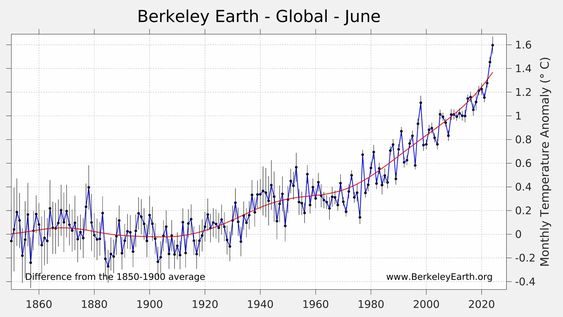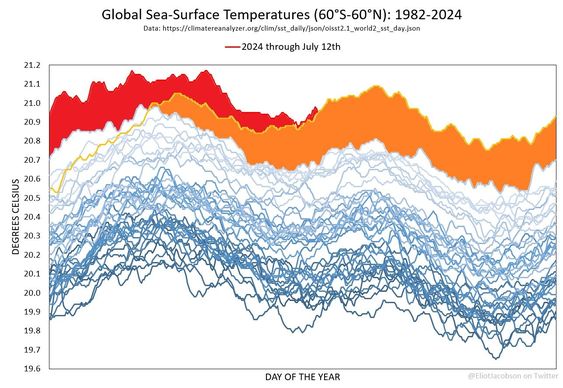
Despite La Niña Conditions the world’s oceans appear to have been running a fever last year, says findings in “Advances in Atmospheric Sciences” a study authored by scientists from China, Italy, and the USA.
The temperature record has been broken for six years in a row, while the temperature of the globe has for the last seven years been the warmest recorded ever. Moreover, each decade since 1958 has been warmer than the preceding decades. The warming pattern is mainly attributed to increased human-caused greenhouse gas concentrations as the average level of CO in the atmosphere last year reached a record level of 414 parts per million (ppm). Before the industrial revolution, the level was 280 ppm.
“The long-term ocean warming is larger in the Atlantic and Southern Oceans than in other regions and is mainly attributed, via climate model simulations, to an increase in anthropogenic greenhouse gas concentrations. The year-to-year variation of OHC is primarily tied to the El Niño-Southern Oscillation (ENSO). In the seven maritime domains of the Indian, Tropical Atlantic, North Atlantic, Northwest Pacific, North Pacific, Southern oceans, and the Mediterranean Sea, robust warming is observed but with distinct inter-annual to decadal variability. Four out of seven domains showed record-high heat content in 2021. The anomalous global and regional ocean warming established in this study should be incorporated into climate risk assessments, adaptation, and mitigation.”
In addition, warmer oceans supercharge the weather systems, creating more powerful storms and hurricanes, and increased precipitation. Warmer oceans lead to a warmer and moister atmosphere that promotes more intense rainfall in all storms, especially hurricanes, thereby increasing the risk of flooding (Trenberth et al. 2003; IPCC, 2021). Warming ocean waters threaten marine ecosystems and human livelihoods, for example, coral reefs and fisheries (IPCC, 2019).
The United Nations has proposed 17 inter-linked goals and 169 targets focused on maintaining the health and vitality of human societies and natural ecosystems worldwide (UN, 2021). The Sustainable Development Goals (SDGs) were set up in 2015 by the United Nations General Assembly and are intended to be achieved by 2030. Many goals are closely related to the health of the world’s oceans, and the ocean’s health is vital to the SDGs. For example, the SDG13-Climate Actions; SDG14-Life Below Water; SDG6-Clean Water and Sanitation; SDG2-Zero Hunger; SDG3-Good Health, and Well-Being (Abram et al., 2019; von Schuckmann et al., 2020) are all either directly or indirectly related to oceans. In 2021, the United Nations initiated the Decade of Ocean Science for SDGs to increase the awareness of many problems the ocean faces and to build up capability for ocean monitoring and scientific research. This study indicates that there are still uncertainties and knowledge gaps in monitoring ocean warming; for example, the quantification of uncertainty from interannual to multidecadal scales and the impact of data QC and regional differences of OHCs revealed by different datasets. Thus, better
awareness and understanding of ocean dynamics are fundamental in combating climate change.




3 Comments
Pingback: Heatwaves and Fires Scorch Europe, Africa, and Asia - Bergensia
Pingback: Global Sea Surface Temperatures hit new record - Bergensia
Pingback: penis envy mushroom strain